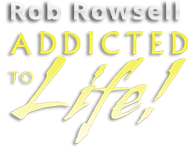Multifamily Property Investor Rob Rowsell shows how to use ChatGPT for Real Estate ventures. Specifically in this video, Rob shows how he uses AI to vet contracts with investors, so that he doesn’t miss any important details.
 ChatGPT For Real Estate Contract Review
ChatGPT For Real Estate Contract Review
Right up front, Rob makes it clear that he uses AI to review every contract that he receives, no matter the subject. In his ChatGPT window, he has Project folders dedicated to each one of his real estate properties. Rob notes that Projects is a feature exclusive to ChatGPT Pro.
Those folders house every agreement regarding their assigned property. These documents include the insurance papers, property management contracts, and security agreements. Anytime that he has a question about one of them, he types it up, and then gets a quick answer back.
In effect, the ChatGPT Pro app is acting as a virtual business mentor. It gives him sound advice about all of his written business agreements.
When he writes the prompts, Rob makes sure to assign ChatGPT the role of an expert in the specific subject the document covers. That way, the advice he receives is laser focused on the topic, as well as swiftly delivered.
Over time, through machine learning, the app knows Rob’s preferences and his intentions for even better responses.
Join Our Multifamily Investing Community Today
Do you own your own multifamily rental properties? If not, do you plan to do so one day? Then you should consider joining our online financial group, the ATL Inner Circle Community! Each month, investing pro Rob Rowsell will teach you what you must do in order to build wealth in the real estate business. It’s not quite as easy as it looks! Property taxes, liens, and legal fees can all be hard to navigate, so having a successful guide in your corner like Rob is a must! Sign up today!

 Beginner Real Estate Investor Kris called in to Rob’s monthly Inner Circle Zoom meeting, and laid out her situation. She bought a house to renovate in order for it to
Beginner Real Estate Investor Kris called in to Rob’s monthly Inner Circle Zoom meeting, and laid out her situation. She bought a house to renovate in order for it to  How To Write Capital Extensions In Your Real Estate Investment Deals
How To Write Capital Extensions In Your Real Estate Investment Deals